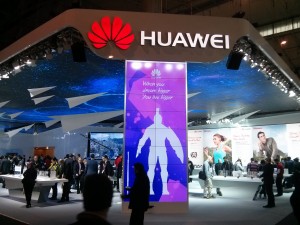PCs: Watch Out Lenovo — Huawei Moves Into Notebooks
Bottom line: Huawei’s new move into notebook PCs could seriously challenge the existing establishment, and it could become a top 5 brand by the end of next year.

Telecoms giant Huawei is making a surprise move into the PC market, with word that it will launch a new line of notebook models next month using chips supplied by Intel (Nasdaq: INTC). The move would put Huawei into direct competition with leading PC maker Lenovo (HKEx: 992), as it aggressively expands beyond its older networking equipment business and diversifies into consumer electronics.
Huawei’s move into notebooks isn’t a huge surprise, since such products are increasingly similar to the new generation of smartphones where Huawei has found recent success. Huawei already sells tablet PCs, which perform many of the functions as notebooks as well. But the move does represent an entire new product area for Huawei, and is almost certain to put the company on collision course with Lenovo in their home China market.
According to the latest headlines, Huawei has confirmed it will launch its first notebook PCs at the end of next month. (Chinese article) The reports say Intel will be one of Huawei’s technology partners, which isn’t hugely surprising since Intel makes most of the chips that power the world’s older generation of traditional computers.
The reports note that Huawei has made a trademark registration for the MateBook name, using the same Mate moniker from one of its most popular lines of smartphones. They say Huawei has recently been aggressively hiring PC designers, again indicating it intends to move quickly and strongly into the space.
Such a move would mirror Huawei’s other recent move into smartphones, and more broadly reflects its efforts to diversify beyond its networking equipment business into the larger but more competitive consumer electronics space. The company has drawn on its strength in telecoms product development to do quite well in the area, and overtook both Lenovo and later the newer Xiaomi to become the world’s third largest smartphone brand last year.
This new move also comes as Huawei founder Ren Zhengfei recently discussed plans to significantly build up his company’s consumer products division. Ren said he wants the division to generate $100 billion in annual revenue within the next 5 years, translating to 30 percent annual growth over that period from current levels. (Chinese article) By comparison, Lenovo earned just $39 billion in total revenue in its latest full fiscal year.
Industry Shake-Up
So, what does all this mean for the global PC industry and in particular for Lenovo and other leading brands like Hewlett-Packard and Dell? The answer is that the industry is likely to soon have a major new player that could challenge the established order.
Huawei rose to prominence a decade ago by challenging European and North American companies in the networking equipment space. Since then it has become one of the world’s leading providers in that space, posing a serious challenge to global rival Ericsson (NYSE: ERIC) and driving a consolidation that has seen earlier giants like Motorola, Alcatel, Lucent and Nokia all merge into a single company now controlled by Nokia.
After mastering the networking equipment business, Huawei more recently moved into smartphones and began to gain significant momentum last year. The company’s biggest strength lies in its obsession with R&D, and Huawei loves to boast about its huge spending on product development and its equally large patent portfolio.
Huawei’s biggest obstacle in moving into consumer products was its lack of marketing experience, since selling such products requires a far different approach from the big networking equipment it sells to telephone companies like BT Corp (London: BT). But Huawei’s recent momentum in smartphones shows it’s quickly learning this new skill. Accordingly, I would expect its new PC foray to advance more quickly, and it’s quite possible it could become a top 5 brand by the end of next year.
Related posts:
- SMARTPHONES: Hungry Huawei Eyes US Smartphone Market
- SMARTPHONES: Huawei Passes 100 Mln Mark, Eyes Apple
- SMARTPHONES: Huawei’s Surging Honor, Xiaomi’s India Advance
- Today’s top stories
(NOT FOR REPUBLICATION)
